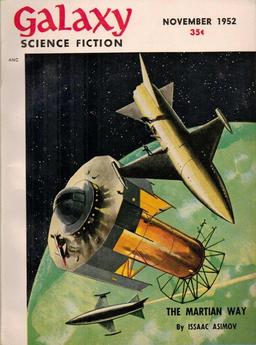 The November 1952 issue of Galaxy Science Fiction features cover art by Jack Coggins of an Earth satellite. This satellite is more like a space station than satellites I typically think of. But considering that the first artificial satellite (Sputnik 1) wasn’t launched until about five years after this issue hit newsstands, everything was still left to the imagination at this point.
The November 1952 issue of Galaxy Science Fiction features cover art by Jack Coggins of an Earth satellite. This satellite is more like a space station than satellites I typically think of. But considering that the first artificial satellite (Sputnik 1) wasn’t launched until about five years after this issue hit newsstands, everything was still left to the imagination at this point.
Before I jump to the fiction, I want to comment on Willy Ley’s “For Your Information.” In part of the column, he discusses Mars and its vegetation. I thought that was rather odd or presumptuous for him, but at this time, scientists were observing coloration on the planet’s surface that changed seasonally. That coloration plausibly suggested vegetation, and if there’s vegetation, what other life might be there? Then Mariner 4 did a fly-by in 1965, showing reality. Additional Mariner spacecraft confirmed more of the same — that Mars was a dead planet.
I wonder how many people were crushed by this, including authors of science fiction. There might have been some who feared Martians coming to destroy us and felt relief. But I also think that the possibility of life on Mars offered a kind of hope to some — that humanity wasn’t completely alone. With the truth of Mars revealed, that hope had to extend beyond the neighboring red planet. It will be interesting to see how science fact continues to influence science fiction, not necessarily by devestating our hopes and dreams but by helping to reshape them into new possibilities. And even without life on Mars, the planet still has an allure to it — a vacant planet that beckons to be explored and perhaps settled.
“The Martian Way” by Isaac Asimov — Mario Rioz and Ted Long work together on a small ship near Mars, tracking and scavenging the abandoned shells of Earth spacecraft. These jettisoned pieces are essentially rocket stages cast off as part of the flight, and they contain metal the humans on Mars can reuse.
A rising politician on Earth named Hilder points out that Mars doesn’t reimburse Earth for the shells, and the monetary investments will take many years to return. But worse than that, Mars can never replenish the water it takes from Earth to propel its ships. As Hilder’s voice gains more attention, other politicians begin mimicking him, which leads to new policies that prevent the scavenging of shells.
…
Read More Read More



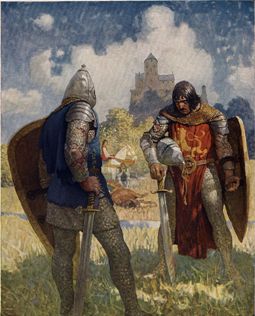


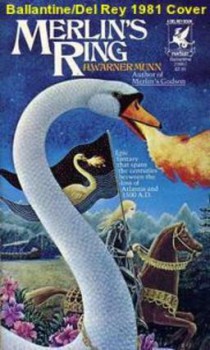
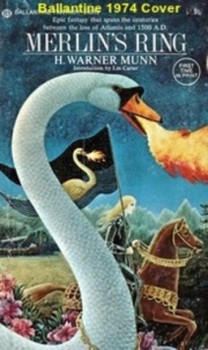
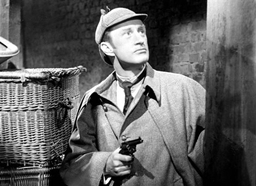
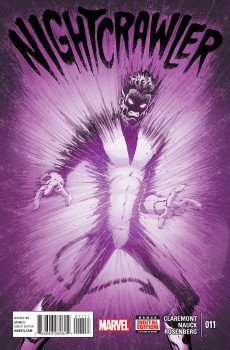
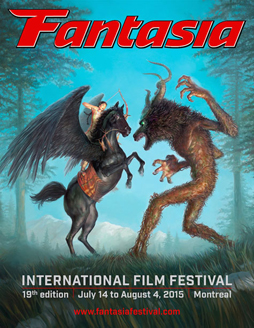 Monday, July 20, was a relatively short day for me at the Fantasia Festival, but one I was looking forward to with great curiosity. At 5 PM I was going to the De Sève Theatre to watch a collection of science-fictional short films: Fantasia’s International Science-Fiction Short Film Showcase 2015 (to give the screening its official name) would show nine films ranging from four to twenty minutes long from seven different countries. Afterwards I’d stick around to see the world premiere of Meathead Goes Hog Wild, a Chicago-set movie about a man pushed to the edge of sanity. It ended up an interesting mixed bag. To go through everything I saw in order:
Monday, July 20, was a relatively short day for me at the Fantasia Festival, but one I was looking forward to with great curiosity. At 5 PM I was going to the De Sève Theatre to watch a collection of science-fictional short films: Fantasia’s International Science-Fiction Short Film Showcase 2015 (to give the screening its official name) would show nine films ranging from four to twenty minutes long from seven different countries. Afterwards I’d stick around to see the world premiere of Meathead Goes Hog Wild, a Chicago-set movie about a man pushed to the edge of sanity. It ended up an interesting mixed bag. To go through everything I saw in order: